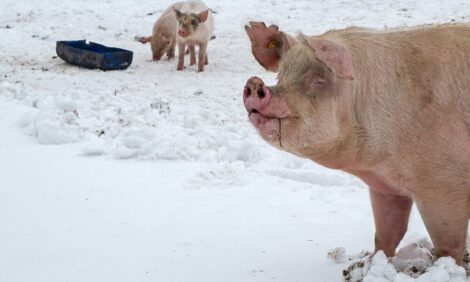



Meat Wholesalers Not Interested in 'Business as Usual'
UK - The Scottish Association of Meat Wholesalers (SAMW) recently held a meeting with Cabinet Secretary for the Rural Economy and Connectivity, Fergus Ewing, to discuss the fears and optimism of Brexit and that the Association’s members are not interested in merely achieving ‘business as usual’.If the UK’s departure from the EU is handled properly it could be a stepping stone to increased food and drink exports from Scotland said SAMW.
The Association also believes, however, that if Brexit is handled badly by Government, Scotland’s farmland will become an unproductive and unprofitable drain on the country’s resources rather than the massive contributor to prosperity and employment of which it is capable.
Speaking at the meeting, SAMW president, Allan Jess, commented: “Our challenge to the Scottish Government, for example, is to pursue a post-EU referendum plan which a) maximises the advantages and opportunities which will arise throughout the duration of the UK’s Brexit transition, and b) establishes a production and business platform for post-EU Britain which will enable the industry to grow its domestic and export markets.
“If these points are addressed we see no reason why the future can’t be very bright for the Scottish red meat industry.
“One fact which will not change during the transition period, however, or in the years following the conclusion of Brexit, is that Scotland’s red meat industry can only survive and prosper if sufficient raw material supplies continue to be made available. A priority for the red meat supply chain, therefore, is to obtain the earliest possible indication of how the UK will replace the EU’s Common Agricultural Policy (CAP) and the subsidies this provides to Scottish farming.
“In 2015, Scotland’s red meat abattoirs received 459,300 cattle, 1,341,520 sheep and 303,040 pigs and SAMW’s members companies are united in stating that the level of supplies in each category was the absolute minimum to enable the current industry to exist in its present form. Any reduction in supply levels, due to policy or producer confusion, over the duration of the Brexit transition, or the lack of a sound domestic and export strategy for post-EU Britain would signal the end of the Scottish red meat industry in its present form.
“As such, there must be no confusion, lack of direction or the creation of production disincentives during the transition period, or beyond. We urged the Cabinet Secretary, in fact, to ensure that producers are given the confidence and reassurance to continue providing Scotland’s abattoirs with at least the level of supplies seen in 2015. Ideally, of course, our member companies would like to see production stimulated during this period to create the strongest possible platform from which to attack the UK’s post-EU future.”






